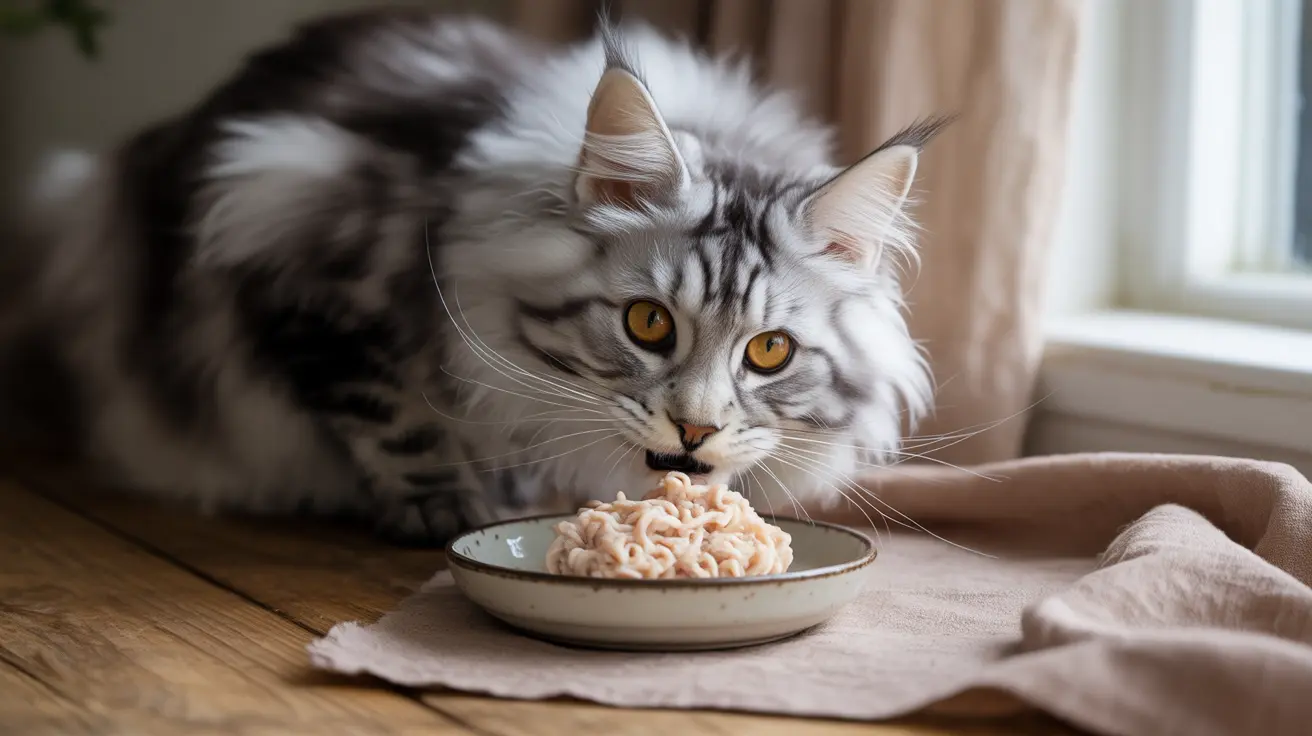The Nutritional Benefits of Ground Turkey for Cats
Ground turkey offers several important nutritional advantages for cats:
- High-quality protein essential for muscle maintenance
- Essential amino acids, including taurine for heart and eye health
- B vitamins for metabolic function
- Minerals like selenium and phosphorus
- Low-fat content when properly prepared
Safe Preparation Guidelines
Cooking Methods
Always follow these preparation guidelines when serving ground turkey to your cat:
- Cook thoroughly until no pink remains
- Avoid all seasonings, including salt and pepper
- Drain excess fat after cooking
- Allow to cool to room temperature before serving
- Break into small, manageable pieces
What to Avoid
Never serve your cat ground turkey that contains:
- Seasonings or spices
- Onions or garlic
- Added fats or oils
- Raw or undercooked portions
- Mixed ingredients like breadcrumbs
Portion Size and Feeding Guidelines
Ground turkey should be offered as an occasional treat, not a meal replacement. Follow these portions:
- Limit to 10% of daily caloric intake
- Start with a small amount (1-2 teaspoons) to test tolerance
- Monitor for any digestive issues
- Feed no more than 2-3 times per week
Health Risks and Warning Signs
While plain ground turkey is generally safe, be aware of these potential risks:
- Digestive upset from overfeeding
- Food-borne illness if undercooked
- Nutritional imbalances if used as a primary food source
- Allergic reactions in sensitive cats
Special Considerations for Different Cat Life Stages
Consider your cat's age and health status when offering ground turkey:
- Kittens: Wait until fully weaned and eating solid food
- Senior cats: May benefit from the easy-to-digest protein
- Cats with health conditions: Consult your veterinarian first
- Pregnant or nursing cats: Check with your vet regarding portion sizes
Frequently Asked Questions
Can cats safely eat plain cooked ground turkey as a treat?
Yes, cats can safely eat plain, cooked ground turkey as an occasional treat. Ensure it's thoroughly cooked without any seasonings, oils, or additives.
What are the risks of feeding cats raw or seasoned ground turkey?
Raw ground turkey can contain harmful bacteria like Salmonella, while seasoned turkey may contain ingredients toxic to cats, such as garlic, onions, and salt. Both should be avoided.
How much ground turkey can I give my cat without causing digestive issues?
Start with 1-2 teaspoons as an occasional treat, no more than 2-3 times per week. Monitor your cat for any digestive upset and adjust portions accordingly.
Why should turkey skin, fat, and bones be avoided when feeding cats?
These components can cause pancreatitis (from excess fat), choking hazards, and internal injuries from splintered bones. Stick to lean, boneless meat only.
Are processed turkey products like turkey bacon or deli meat safe for cats?
No, processed turkey products contain high levels of sodium, preservatives, and other additives that can be harmful to cats. Only serve plain, home-cooked ground turkey.
Conclusion
Ground turkey can be a healthy addition to your cat's treat rotation when properly prepared and served in moderation. Remember to always cook it thoroughly without seasonings, drain excess fat, and monitor your cat's response. When in doubt, consult with your veterinarian about incorporating ground turkey into your cat's diet, especially if your pet has specific health concerns or dietary restrictions.






